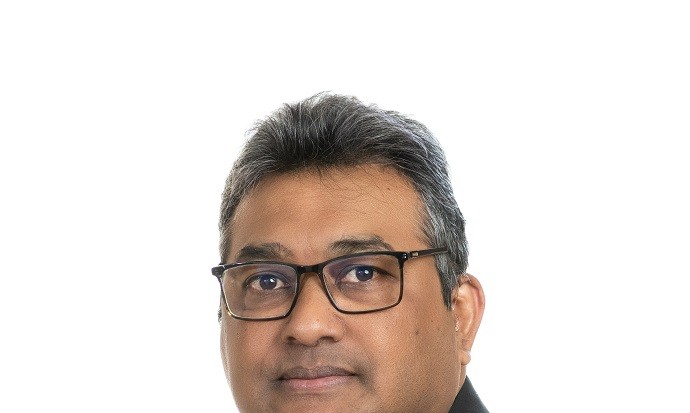
Prof Maniraj Sukdaven completed his undergraduate studies at the University of Durban-Westville, now the University of KwaZulu-Natal, and has been doing research at the University of Pretoria (UP) for seven years.
He says his field of research contributes to the betterment of the world because religious intolerance, although not new, is still one of the greatest contemporary issues that leads to religious violence in different forms. “By engaging in interreligious dialogue, a platform is created where differences can be addressed, solutions found and social cohesion promoted,” he says. “Although the three Abrahamic religions seem to be the focus of many interreligious dialogues, especially within Scriptural Reasoning, the contribution added to this dialogue is the inclusion of Hinduism and African Traditional religions, especially when focused on the African continent.”
He publishes articles on interreligious dialogue and social cohesion in his personal capacity. Prof Sukdaven is also working on two focused areas in his discipline via his postgraduate students who are researching different aspects of Hindu philosophy and African Traditional religion.
Prof Sukdaven will be leading a research team on the subject of religion-inspired violence. Also, a centre within the Department of Religion Studies – the Oxford Centre for Religion, Public Life and Security in Africa – will soon be established. The constitution has been adopted and implementation of the programmes related to this study will begin in 2022. The research programme will have its genesis with a consultation by international experts on countering religion-inspired violence.
This consultation aims to:
• explore the causalities as well as methodologies and consequences of religion-inspired violence throughout the centuries;
• learn about this sort of violence in religious and secular traditions throughout the world today, with a particular focus on Africa; and
• formulate a response to counter such violence through peacemaking, peacebuilding and reconciliation; scriptural reasoning; de-radicalisation programmes; the relevance of the just-war theory, etc.
With the establishment of the centre, Prof Sukdaven will be working closely with relevant centres in the faculties of Humanities, Law and Education.
A recent highlight for the professor was working with a team of experts on translating a few Timbuktu Manuscripts. The team published articles and three books, and an international conference took place to address the question of the “two-horned one” found in one of the manuscripts. This is a reference to a piece of text about Alexander the Great and the Qura’anic figure Dhul Qarnain, and the question of whether or not Alexander the Great was the same person as the Dhul Qarnain – literally the “two-horned one”. (Alexander’s iconic crown bore two horns.) Two of the books that were published were presented to the Unisa Library by former president Thabo Mbeki.
As to whether a specific event or person inspired him in his research effort, Prof Sukdaven says he’s had first-hand experience of religious intolerance after being the target of an attempted assassination plot by a particular religious sect. “I realised it was as a result of religious intolerance, which needed to be addressed,” he explains. “I then became involved in leading a team of religious leaders to address religious intolerance in our community. This boded well for all, to the extent that it led to, not so much social cohesion, but to religious tolerance, which in my view is not the ideal, but a road towards acceptance and appreciation of other beliefs and practices. This led me to engage in research in the field of interreligious dialogue.”
Prof Sukdaven says he does not really have an academic role model. Although, in his research, he found the following excerpt from the 12th Edict of King Ashoka Mauryan (304 BCE-232 BCE) inspiring: “Growth in essentials can be done in different ways, but all of them have as their root restraint in speech, that is, not praising one’s own religion or condemning the religions of others without good cause. And if there is cause for criticism, it should be done in a mild way. But it is better to honour other religions for this reason. By so doing, one’s own religion benefits, and so do other religions, while doing otherwise harms one’s own religion and the religions of others.”
“These words accelerated my research in interreligious dialogue, which included, among others, Scriptural Reasoning as a form of interreligious dialogue,” he says.
Prof Sukdaven hopes that through his research he will make a contribution to various societies and religious communities to live in peace and harmony irrespective of their religious beliefs. His research matters because it adds value to humanity for the flourishing and fullness of life when issues such as religious violence has caused many deaths and crimes against humanity. “Interreligious dialogue can promote peace and harmony for religions to coexist,” he says.
In South Africa, violence can be racially, religiously or prejudicially charged. As such, Prof Sukdaven’s advice to school learners interested in his field of study is that research in interreligious dialogue, with the aim of social cohesion, will assist in unlocking ethics, morals and values in the promotion of peace and harmony.
In his spare time, Prof Sukdaven enjoys watching sports such as rugby, cricket and soccer. He has an interest in community development and is involved in setting up a community project for subsistence and commercial farming for the indigent community of Mamelodi.
 Story
Story
The Department of Science of Religion in the Faculty of Theology at the University of Pretoria (UP), in association with the Muslim Education Institute Trust (MEIT), recently held a conference on one of the Timbuktu Manuscripts, viz the text dealing with Alexander the Great and Dhul Qarnain.
Copyright © University of Pretoria 2025. All rights reserved.
Get Social With Us
Download the UP Mobile App